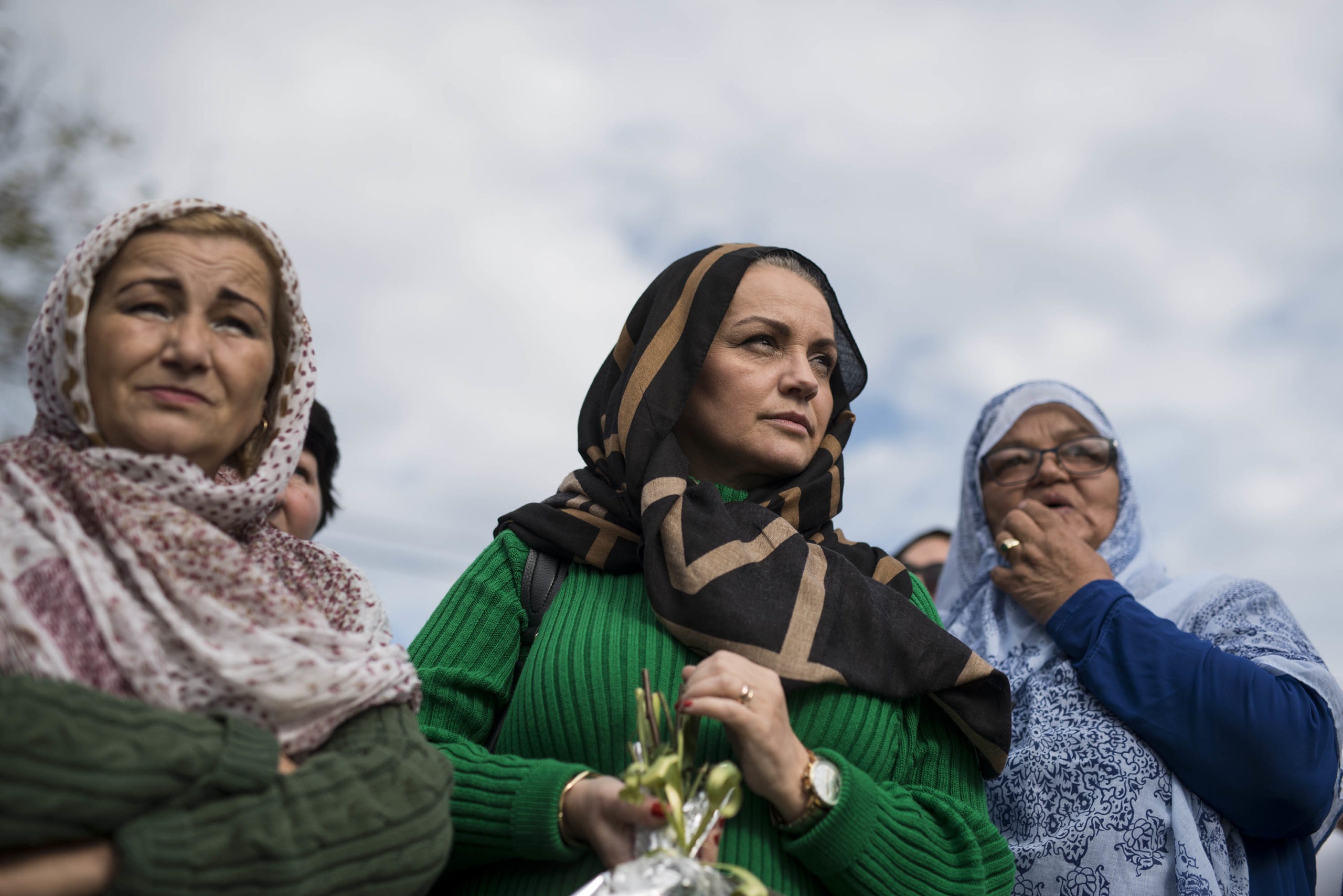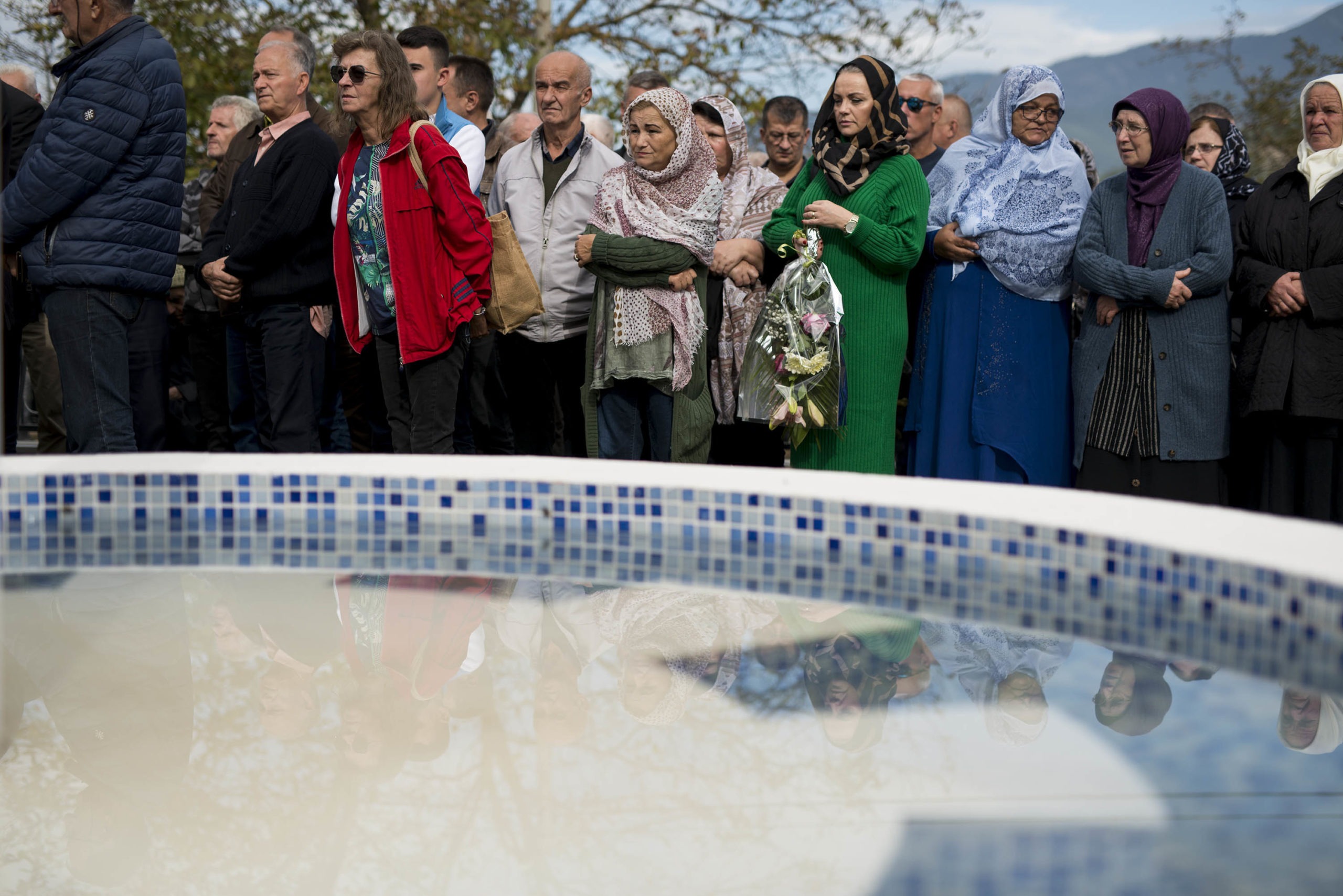On the thirtieth anniversary of the abduction and killing of 17 civilians from Sjeverin near Priboj, a funeral service was held and a commemoration in memory of the victims. The commemoration was attended also by peace activists and war veterans from Serbia, Bosnia and Herzegovina, and Croatia.
The crime in Sjeverin took place on 22 October 1992 when, near Mioče, a group of 17 Bosniaks, including one woman, was taken off a bus they were riding to Priboj for work. They were then taken by truck to Višegrad where they were all killed. The day before, on 21 October 1992, Sabahudin Ćatović had similarly been abducted from his home.
A full 30 years after the crime, the remains of only one victim were found. After 30 years of waiting, it was decided that a funeral service would be held for all the victims even though their remains had not been found. The service was led by the Grand Mufti of the Islamic Community Husein ef. Kavazović.
Mehmed Šebo, Zafer Hadžić, Medo Hodžić, Medredin Hodžić, Ramiz Begović, Derviš Softić, Mithad Softić, Mujo Alihodžić, Alija Mandal, Sead Pecikoza, Mustafa Bajramović, Hajrudin Sajtarević, Esad Džihić, Idriz Gibović, Ramahudin Ćatović, and Mevlida Koldžić were abducted and executed on that day in 1992.
The families of the victims have spent thirty years not just in their sorrows, but in a struggle to find the remains of their loved ones and have their status as civilian war victims recognised. The state of Serbia, as well as the European Court of Human Rights, refused all attempts to reach any measure of justice on account of very bureaucratic and procedural reasons. The state of Serbia due to the fact that the abduction took place in the territory of Bosnia and Herzegovina (where the bus had to pass on its way to Priboj), and the European Court because at the time of the abduction, Serbia was not party to the European Convention on Human Rights. The District Court in Belgrade sentenced Milan Lukić and Oliver Krsmanović each to 20 years in prison, and Dragutin Dragićević and Đorđe Šević each to 15 years in prison, for the crime committed in Sjeverin, among others. Lukić was sentenced by the ICTY to life imprisonment for crimes committed in Višegrad, but his numerous wrongdoings did not include the crime from Sjeverin.
“When I stood before a mirror to think about what needs to be said today, first to myself and then to all of you here, my throat closed up because there is little that could be said and that hasn’t already been said in these past 30 years. We will not give up the fight for truth and our rightful recognition as victims. We as families expect the criminals and those that ordered the crime to be convicted, for the archives to be opened up, for our status to be recognised, so that we are not divided into first- and second-class citizens, for the law on civilian war victims to be amended, and for what happened to us to never happen to anyone again,” said Omer efendija Hodžić in his emotional address. His father and aunt had been on that bus on their way to work, and he never saw them again.
In addition to the victims’ families and religious leaders from the Islamic Community, the commemoration was also attended by a large number of citizens, and the organisers expressed particular gratitude to the Priboj Municipality that has provided support to marking the anniversaries and to raising a monument in Sjeverin. Paying their respects by throwing flowers from a bridge over the Lim in Mioče was a mixed group of war veterans and activists of the Centre for Nonviolent Action Sarajevo-Belgrade.
“These people that we remember today were citizens of Serbia, they were abducted and killed because of their ethnicity, and the silence of the state of Serbia, its ignoring of this crime and the one in Štrpci, both very similar, tells us that these were not just incidents by deranged criminals, but an organised action by state authorities. Citizens of Serbia were abducted and killed and the state of Serbia has a duty to shed light on their fate, to find where they were buried, to provide for a dignified funeral and memory of these people and reparations for their families. It is the least that it can do. For our part, we, the citizens of Serbia, must show solidarity with the families, we must support them in their struggle for justice and truth, and we must never again allow the killing of people in our name,” said Katarina Milićević, an activist from the Centre for Nonviolent Action, after the commemoration in Sjeverin.
Under the organisation of the Centre for Nonviolent Action, peace activists and war veterans from the region have attended commemorations in BiH in Gornji Vakuf, at Site 715 near Zavidovići, in Stog near Vozuća, in Novi Grad/Bosanski Novi, Sanski Most (Hrastova glavica), Sijekovac near Brod, Laništa near Brčko, Trusina near Konjic, Ahmići near Vitez, Grabovica, Uborak and Sutina near Mostar, Briševo and Zecovi near Prijedor, Korićanske stijene, Stupni Do near Vareš, Boderište near Brčko, the bridge over the Sava in Brčko, Bradina near Konjic, Skelani near Srebrenica, the Silos in Tarčin near Hadžići, Vitez, and in Serbia in Grdelička klisura near Leskovac, Varvarin near Kruševac, Aleksinac, in Prijepolje for victims abducted from the train in Štrpci, as well as in Croatia in Pakrac, Varivode and Gošić near Knin.

